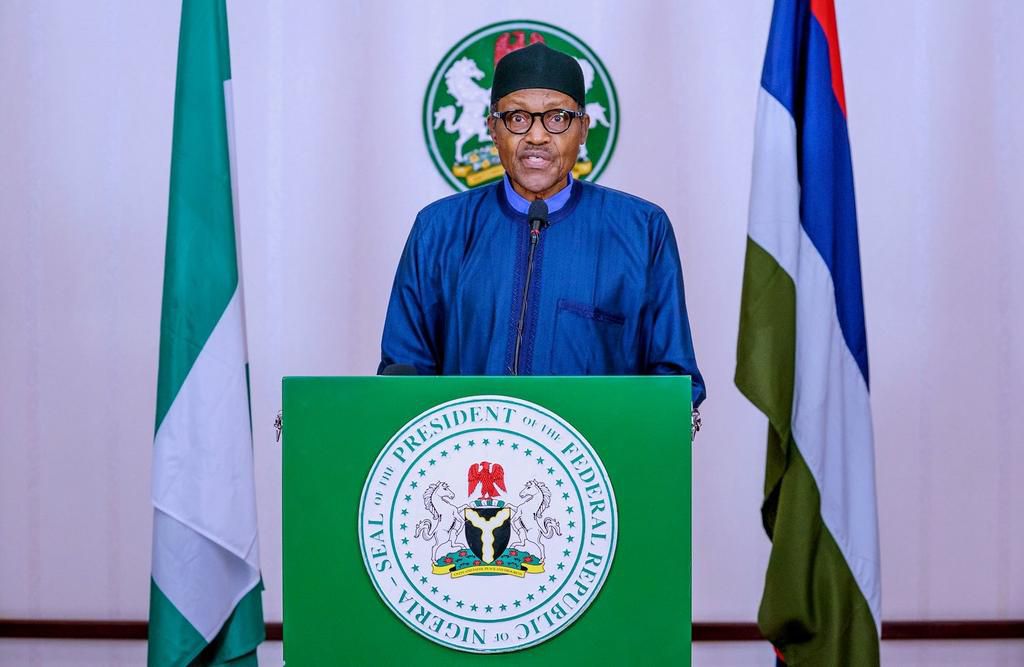209 human rights advocates ask Buhari to free singer sentenced to death for blasphemy
)
A group of Nigerian and international organizations and advocates have called on President Muhammadu Buhari to immediately release Yahaya Sharif-Aminu, an Islamic gospel musician sentenced to death by hanging in 2020.
Yahaya was sentenced to death by an upper Sharia court in Kano for blasphemy against the Prophet Muhammad.
33 months after his sentencing, advocate groups in Nigeria and abroad have raised concerns about the prosecution and conviction of the singer.
In a letter dated May 18, 2023, and addressed to President Buhari, the groups asked the government to withdraw all charges against Yahaya and ensure his safety.
The group argued that the singer was not afforded a lawyer before was convicted and sentenced for blasphemy.
The letter reads in part, “We are writing to express our grave concern at the continuing prosecution of Yahaya Sharif-Aminu in Nigeria for allegations of blasphemy. We strongly urge Nigeria to immediately release Yahaya Sharif-Aminu, withdraw all charges against him, and ensure his safety.
“In March 2020, Yahaya Sharif-Aminu, a Sufi musician in Kano State, was arrested on charges of blasphemy for allegedly insulting the Prophet Muhammad in two WhatsApp audio messages and held without bail. Around the time of his arrest, a mob burned down his home, and no member of the mob has been prosecuted.
“During his trial, he was not afforded a lawyer. He was convicted and sentenced to death by hanging in August 2020 for violating Section 382(b) of the Kano State Sharia Penal Code Law”.
The groups said that when a court overturned Yahaya’s conviction, he was ordered to a retrial, where he would face the same potential death penalty, adding that Kano State’s blasphemy law violates both the Nigerian Constitution and international laws.

“Sharif-Aminu is now appealing to the Supreme Court of Nigeria to find Section 382(b) unconstitutional and in violation of international law, including the African Charter. He has now spent over three years in prison for his peaceful and brief remarks that merely expressed his religious beliefs”, the groups said.
The groups further argued that Nigerian and international laws protect freedom of religion and that expressing one’s beliefs should not warrant a death sentence.
The human rights groups maintained that the death penalty should be reserved only for serious crimes.
“The Nigerian Constitution protects the freedoms of thought, conscience, religion, and expression, and that includes the ability to peacefully share with others the tenets of one’s beliefs, even if others may strongly disagree with them.
“International law, including the African Charter and the International Covenant on Civil and Political Rights, similarly protect freedom of expression and freedom of religion or belief.
“It also requires that the death penalty be reserved only for the most serious crimes in those States that have not abolished the death penalty. In no sense can the mere posting of peaceful audio messages expressing one’s beliefs amount to a severe crime warranting death, or even any crime at all”, the groups argued.
The groups said that a democracy cannot function when the most basic freedoms were not protected, and as the largest democracy in Africa, Nigeria’s example matters.
)
![Aisha blows hot on Security forces; Y7ou won't believe what she said [VIDEO]](https://image.api.sportal365.com/process/smp-images-production/pulse.ng/17082024/1f976edf-1ee2-4644-8ba1-7b52359e1a8f?operations=autocrop(640:427))
)
)
)
![Lagos state Governor, Babajide Sanwo-Olu visited the Infectious Disease Hospital in Yaba where the Coronavirus index patient is being managed. [Twitter/@jidesanwoolu]](https://image.api.sportal365.com/process/smp-images-production/pulse.ng/16082024/377b73a6-190e-4c77-b687-ca4cb1ee7489?operations=autocrop(236:157))
)
)
)
)
)
)
)
)
)
)
)